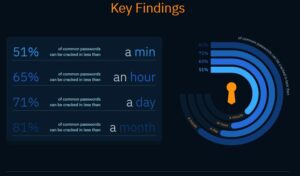
Affirm is laying off 19% of its workforce, effective immediately. The Buy Now, Pay Later (BNPL) giant is the latest fintech company caught in the multi-month-long series of tech layoffs that has claimed 97,996 tech employees so far this year.
In his letter to shareholders Wednesday, Affirm Founder and CEO Max Levchin called the decision “the single most difficult one” of all the cuts the company chose to make, and said the layoffs would be effective today.
In a separate memo to employees earlier today, which he later shared publicly, Levchin said that the company “consciously hired ahead of the revenue required to support the size of the team,” with revenue growth justifying the strategy during the early part of the pandemic.
“Everything changed in mid-2022,” Levchin said, pointing to Federal Reserve policy that he said has “dampened consumer spending and increased Affirm’s cost of borrowing dramatically.”
“The root cause of where we are today is that I acted too slowly as these macroeconomic changes unfolded,” Levchin wrote. Levchin also told the shareholders that the company expects to keep the headcount “essentially flat for the foreseeable future.”
“In FQ2′23, we redirected the substantial majority of our R&D efforts towards margin-improving projects, repeat consumer engagement, and Debit+ and plan to continue executing this focused roadmap for several quarters,” Levchin said.
Affirm was founded in 2012 by Jeffrey Kaditz, Max Levchin, and Nathan Gettings. The San Francisco fintech company offers installment loans to consumers at the point of sale. It later went public in January of this year. Its stocks pop 98% on its IPO debut. A day after Affirm went public, Forbes wrote a piece about “3 Risks To Buying Affirm Stock.” Not even mentioning competition from big players like Apple and Google, one of the risks discussed in the article is “intense competition in the installment lending business.” You can read the rest of the story here. Two years later, the piece turned out to be right.
The Buy now, pay later (BNPL) phenomenon grew in popularity in recent years as customers seek alternative methods of financing. BNPL is a new payment option that allows consumers to receive their purchase right away (Buy Now), either online or in-store and then pay (Pay Later) for their purchase in installments. BNPL is now revolutionizing the customer journey by being seamlessly integrated into e-commerce as a checkout option.
So far, BNPL accounts for only a small portion of overall credit card spending. However, with the coronavirus pandemic-fueled e-commerce boom, this alternative model of financing may be poised to disrupt the $8 trillion US payment card industry.
- SEO Powered Content & PR Distribution. Get Amplified Today.
- Platoblockchain. Web3 Metaverse Intelligence. Knowledge Amplified. Access Here.
- Source: https://techstartups.com/2023/02/08/affirm-lays-off-19-of-its-workforce-as-higher-interest-rate-dampens-consumer-spending-and-slows-down-the-buy-now-pay-later-industry/
- $8 Trillion
- 2012
- a
- About
- Accounts
- Affirm
- After
- ahead
- All
- allows
- alternative
- and
- Apple
- article
- being
- Big
- BNPL
- boom
- Borrowing
- business
- buy
- Buying
- called
- card
- card industry
- caught
- Cause
- ceo
- Changes
- Checkout
- chose
- claimed
- company
- competition
- consumer
- Consumer Engagement
- Consumers
- continue
- Coronavirus
- Cost
- credit
- credit card
- customer
- Customer Journey
- Customers
- cuts
- day
- decision
- difficult
- discussed
- Disrupt
- down
- dramatically
- during
- e-commerce
- Earlier
- Early
- Effective
- efforts
- either
- employees
- engagement
- Even
- executing
- expects
- Federal
- federal reserve
- financing
- fintech
- FINTECH COMPANY
- flat
- focused
- Forbes
- foreseeable
- Founded
- founder
- Founder and CEO
- Francisco
- from
- future
- giant
- gif
- Growth
- higher
- However
- HTTPS
- immediately
- in
- increased
- industry
- installment
- integrated
- interest
- INTEREST RATE
- IPO
- IT
- January
- journey
- Keep
- latest
- layoffs
- Lays
- LAYS OFF
- lending
- letter
- Loans
- Macroeconomic
- Majority
- make
- Market
- max
- methods
- model
- most
- New
- Offers
- ONE
- online
- Option
- overall
- pandemic
- part
- Pay
- payment
- Payment Card
- phenomenon
- piece
- plan
- plato
- Plato Data Intelligence
- PlatoData
- players
- Point
- point of sale
- policy
- pop
- popularity
- projects
- public
- publicly
- purchase
- R&D
- Rate
- Read
- receive
- recent
- repeat
- required
- Reserve
- REST
- revenue
- revenue growth
- Revolutionizing
- risks
- roadmap
- root
- Said
- sale
- San
- San Francisco
- seamlessly
- Seek
- separate
- Series
- several
- shared
- Shareholders
- single
- Size
- Slowly
- slows
- small
- So
- so Far
- Spending
- stock
- Stocks
- Story
- Strategy
- substantial
- support
- team
- tech
- The
- their
- this year
- to
- today
- too
- towards
- Trillion
- Turned
- us
- Wednesday
- which
- Workforce
- would
- year
- years
- zephyrnet












